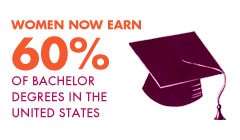
March 7, 2012 | Law and Justice
Woman of the Week: Justice Ann Claire Williams
After overcoming her own struggles, Justice Williams is committed to giving back.
By Anna Louie Sussman
NEW YORK -- When she applied to Notre Dame law school, Ann Claire Williams had a fairly narrow idea of what lawyering was about.
“The only lawyer I knew was Perry Mason, and I wanted to be a trial lawyer because I wanted to cross examine and have the defendant confess, or turn dramatically to the gallery,” she said in a phone interview. “I wanted to be like Perry.”
As it turns out, Williams left Perry in her dust. Now a federal judge on the United States Court of Appeals for the Seventh Circuit, she spent nine years as the Assistant United States Attorney in Chicago, going on to become the first Chief of the Organized Drug Enforcement Task Force, responsible for coordinating federal investigations and prosecutions across five states. The recipient of dozens of public service and achievement awards from legal and community organizations as well as the Devitt Award, considered the highest award that a federal judge can receive, Williams was shortlisted by President Obama for a Supreme Court seat in 2010.
Throughout her 37-year legal career, she has retained the spirit of service that drove her to become a music and third-grade teacher in Detroit’s inner-city public schools fresh out of college. Judge Williams has launched several foundations encouraging and supporting minority students to enter and succeed in the legal profession, and has trained prosecutors at international tribunals in Rwanda and the Hague.
Among the many causes she supports, bringing more women into senior judicial positions is a top priority. Women, she said, often have a perspective that makes them uniquely qualified to use the law to push for equal justice under the law.
“I think it has to do with the struggle that women have,” she said. “Often women who've struggled have an understanding for others who are struggling. And they remember those issues, and try to implement change that ensures the equal administration of justice for all.”
As a member of the Advisory Board of Lawyers Without Borders and Cornell’s Avon Center for Women and Justice, Judge Williams presides over trainings and conferences with women judges from all over the world. Many of them come from countries where women still lack equal protection under the law, or in practice. Women judges, she said, can play a role in rectifying that inequality.
“They recognize they can play a role in raising the status of women and others who have been marginalized within their societies, in making sure women have equal rights, being concerned about children and that kind of thing,” she said. “When you look at the backgrounds of these women judges, so many of them are leaders and play a great role in their communities, pushing for social change.”
Her own parents battled with racism as they were raising three daughters in Detroit, Michigan. Despite being college educated, bigotry prevented them from pursuing the jobs for which they were qualified. Her mother couldn’t get a full-time position as a teacher, and had to work at a school for juvenile delinquents. Her father, with a degree in psychology and political science, drove a bus. Even as a child, she knew that although she admired his uniform and loved helping him count the quarters he collected, injustice was afoot.
“Once I teared up and I said ‘Daddy, how could you stand it? You had this great education,’” she remembered. “And he said ‘I did what I had to do, for you and your sisters. No one could take my education away from me, and being a bus driver is good, decent, honest work.”
She has since broken boundaries in several roles, including being the first African-American supervisor in the U.S. Attorney’s office in Chicago, the first African-American judge appointed to the Seventh Circuit, and the first African-American to serve as President of the Federal Judges Association.
“My struggle pales by comparison, but there were also a lot of ‘firsts’ in my career, and a lot of people from many different backgrounds who helped me,” she said. “Because I have had those experiences, I know what struggle is.”
“And because I've seen so many people overcome that struggle, I feel I have an obligation to help those women,” she said. “And I think a lot of women feel like that.”
Anna Louie Sussman is a writer and editor for the Women in the World Foundation website, and a frequent contributor to major U.S. magazines and newspapers.